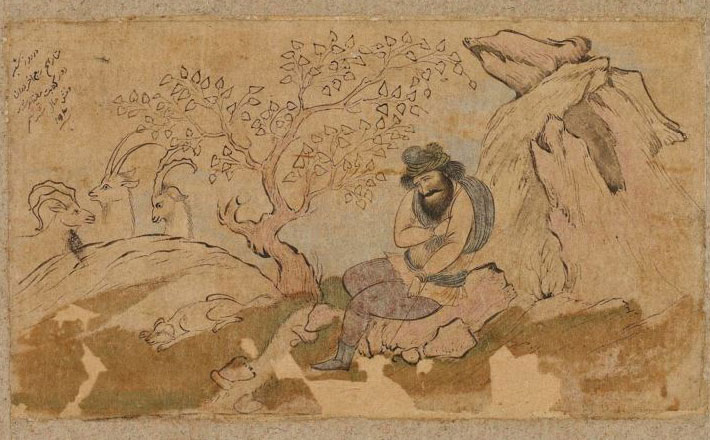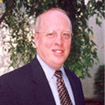Commentary on John 10:22-30
This passage focuses on Jesus’ identity and his relationship with the Father.1
Although the gospel itself emphatically declares Jesus’ identity from the opening sentence (1:1), his identity and the source of his ministry remain a puzzle for many throughout the rest of the story. After two disciples’ initial encounter with Jesus, one of them calls him “Rabbi” and “Messiah” (1:37-41). Nathanael calls him “Rabbi,” “Son of God,” and “King of Israel” in one packed sentence (1:49). Nicodemus calls him “Rabbi” and “teacher who has come from God” (3:2). In Samaria, the woman at the well proclaims him “prophet” and “Messiah” (4:19, 29), while the rest of her city follows with “Savior of the world” (4:42). At the feeding of the 5,000, the crowd understands him as “prophet” and wants to declare him “king” (6:14-15).
After these initial descriptions, the question of his identity becomes more hotly contested. The crowd follows Jesus from the feeding to the other side of the sea, and in the ensuing debate, the authorities dismiss him as merely “Jesus, son of Joseph, whose father and mother we know” (6:42). However, as the debate ends, Peter declares him to be the Holy One of God (6:66-69). In a different crowd’s dispute, he is conflictingly described as a “good man” and as a deceiver (7:12); as demon-possessed (7:20) and as “prophet” (7:40). Some assert and some deny his identity as “Messiah” (7:41-43).
Debate continues more heatedly when the authorities directly ask him who he is and who he claims to be (8:25, 53). They disparage him as a demon-possessed Samaritan (8:48, 52), then seek to kill him as (implicitly) a blasphemer (8:57-59). Opposition intensifies when authorities question the man born blind. They call Jesus a Sabbath-breaking sinner (9:16, 24). The man simply calls him “Jesus” (9:11), then “prophet” (9:17), then “Lord” (9:38).
In our own time, debate over Jesus’ identity continues. In one place are those who claim to rely solely on science and reason, who would see Jesus as, at best, misguided and, at worst, delusional (they would say demon-possessed, if they believed in demons). In a different place would be some “spiritual” people who adhere to a vaguely-defined higher power or, perhaps, people of other faiths who might view Jesus sympathetically as at least a good man, a wise teacher (rabbi), or a prophet. In a different place again would be believers who understand him as Messiah, Son of God, Savior of the World, and Lord. How we engage those who hold different views of Christ remains a vital question for individuals and communities of faith.
In John, Jesus offers his own arguments regarding his identity. In the verses leading up to this passage, Jesus proclaims himself “the gate of the sheep” and “the good shepherd” (10:7, 11, 14). Some counter by repeating that he has a demon. Others defend him because he healed the man born blind (10:19-21).
In our passage, his opponents demand, “If you are the Messiah, tell us plainly” (10:24). Jesus’ response has two components. First, “I have told you, and you do not believe.” For some, words– no matter how clearly spoken– hold any persuasive power. He has already told them plainly, to no effect. Second, Jesus simply maintains, “The works that I do in my Father’s name testify to me.” He had used that argument before at Bethzatha (5:36-38). He extends his argument later, declaring that if people will not believe his words, they should get all they need to know from his works (10:37-38; 14:9-11).
Jesus’ argument means that our preaching and our worship–our words–are not enough to persuade skeptics of the truth of the gospel. Even Jesus did not place maximum confidence in his words but depended more on the persuasive power of his works. Lest we be tempted to say, “Yes, but he is Jesus and we are just us,” Jesus later asserts, “the one who believes in me will also do the works that I do and, in fact, will do greater works than these” (14:12). As crucial as preaching and worship are, even more crucial is our total ministry. If those around us do not believe the gospel on the basis of what happens on Sunday morning, perhaps they will believe–or not believe–based on what we do the rest of the week.2
This leads to Jesus’ final assertion of his identity in this passage, “The Father and I are one” (10:30). Jesus has just described his capacity to give eternal life and his power to preserve the lives of believers, capacities that his Father has given to him (10:28-29). This assertion of oneness connects with the larger theme of Jesus’ works. Although his statement in 10:30 seems to stand in contrast to 14:28–when he says “the Father is greater than I”–the resolution to this apparent contradiction lies in his life and actions. His works show that he is in the Father and the Father is in him (10:37-38). It does not deny the Nicene Creed’s understanding of the relationship of the Father and the Son to say that in John, Jesus’ oneness with the Father can be expressed “functionally”–we know who he is by what he does.3 Because of Jesus’ works and how he carried out his works, he–and only he–can rightfully say that he and the Father are one.
1 Gendered language for God and Christ is an inherent aspect of the fourth gospel, just as gendered language about God’s quest for the lost is an inherent aspect of the parable of the woman and the lost coin (Luke 15:1-10).
2 I cannot find the exact citation, but these words are widely attributed to Alice Walker, “Anybody can observe the Sabbath, but making it holy surely takes the rest of the week.”
3 This understanding calls for much more exploration than can be undertaken here. However, for example, earlier Jesus has stated “I can do nothing on my own” [the Father is greater than I] …I seek to do not my own will but the will of the one who sent me” [I and the Father are one] (5:30). Several other passages in John blend this contradiction into complementary aspects of the same reality: “My teaching is not mine, but his who sent me” (7:16). (My teaching is from him [the Father is greater than I], yet all my teaching is from him [I and the Father are one].) See also 8:16, 26, 29, 42; 12:44-45; 13:20; 14:24.


April 25, 2010